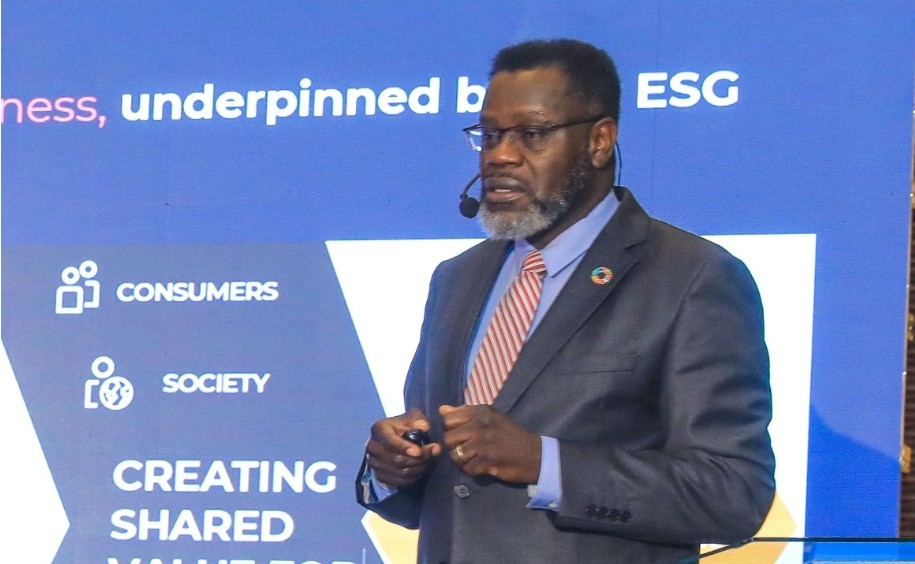“… the enjoyment of the highest attainable standard of health is one of the fundamental rights of every human being without distinction of race, religion, political belief, economic or social condition” is one of the powerful clauses adopted in the constitution of the World Health Organization and should resonate with all nations.
In a country where access to quality healthcare has often been a challenge, the implementation of Universal Health Care (UHC) stands as a game-changer with far-reaching impacts on the welfare of citizens and is key to revolutionising our nation's health landscape.
After all, the success of a nation is tied to the well-being of its masses. Healthcare is one of the five pillars of Kenya Kwanza’s Bottom-up Economic Transformation Agenda and is domiciled in promoting access to quality and affordable healthcare for the socioeconomic development of the country.
One year at the helm of the Ministry of Health, it has increasingly become evident that UHC is not merely a policy as it encapsulates the essence of equitable, accessible and high-quality healthcare for every citizen.
Our delivery of UHC is heralded on the expansion of primary healthcare services across the country through deliberate effort to bring essential medical services to all Kenyans which the government has prioritised through the tagline ‘Afya Nyumbani’.
With the support of the 100,000 Community Health Promoters, we will tear down barriers that have locked millions of Kenyans from accessing timely healthcare in government health facilities as we prioritise the transformation of health services from curative to preventive and promotive approaches.
Our first leap into realising UHC has been through legislation – the enactment of the four Health Bills into law – the Social Health Insurance Fund, Primary Healthcare Fund and Emergency, Chronic and Critical Illnesses Fund – which will be financed by the government through taxes and support from health partners.
The entire continuum of essential health services is covered under UHC – from health promotion to prevention, treatment, rehabilitation and palliative care throughout the course of life. With this approach, we are looking forward to a time when healthcare will no longer be a luxury reserved for the few privileged individuals but a fundamental right that is accessible to all as stipulated in the constitution.
This will liberate individuals to seek medical care promptly, unburdened by the spectre of crippling costs whilst laying the foundation for a healthier, more economically robust society.
In Kenya today, confinement of patients in hospitals due to unsettled health bills is a big problem which paints a grim picture of the anguish Kenyans go through while seeking access to quality health services in our hospitals.
This is particularly true for patients suffering from terminal illnesses where families are forced to offset their property to clear the bills. However, this will be a thing of the past with the enactment of the Social Health Insurance Fund, Kenyans will now for the very first time enjoy limitless insurance for the entire duration of treating terminal illness through the Emergency, Chronic and Critical Illness Fund.
At the same time, patients will access services such as chemotherapy, radiotherapy and dialysis in public facilities once they exhaust their limits in private hospitals in one of three kitties under UHC. This is aligned with the central principle of the 2030 Agenda for Sustainable Development that seeks to ensure that no one is left behind.
By assenting into law the four Health Bills, President William Ruto has demonstrated his goodwill in ensuring that all Kenyans receive health services to the highest standard possible – an endearing mark to his steward leadership of the nation.
Moreso, to successfully implement UHC, both levels of government need to financially commit to this goal. The government has so far availed Sh3 billion for the compensation of the CHPs as monthly stipend – they are the veins running the UHC agenda.
In consensus collaboration with county governments, I implore them to match this goodwill and ensure they provide an allocation in their budgets to facilitate the CHPs within their counties.
Embracing UHC transcends the health sector as it catalyses a socioeconomic renaissance – where a populace in the pink of health actively contributes to a more productive workforce, fostering economic growth as we propel Kenya into a new era of well-being and prosperity.
Cabinet secretary for Health













